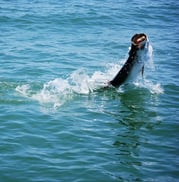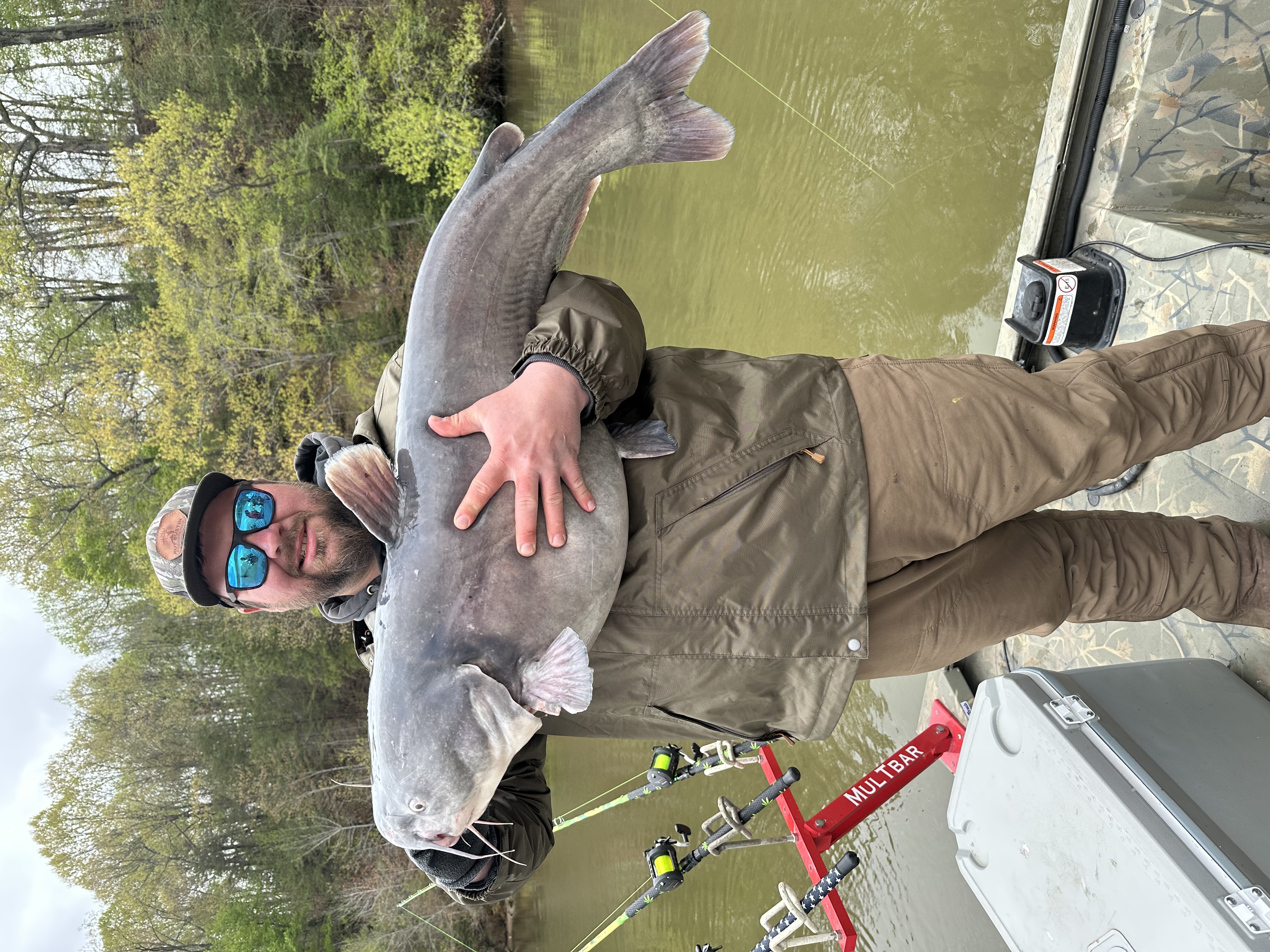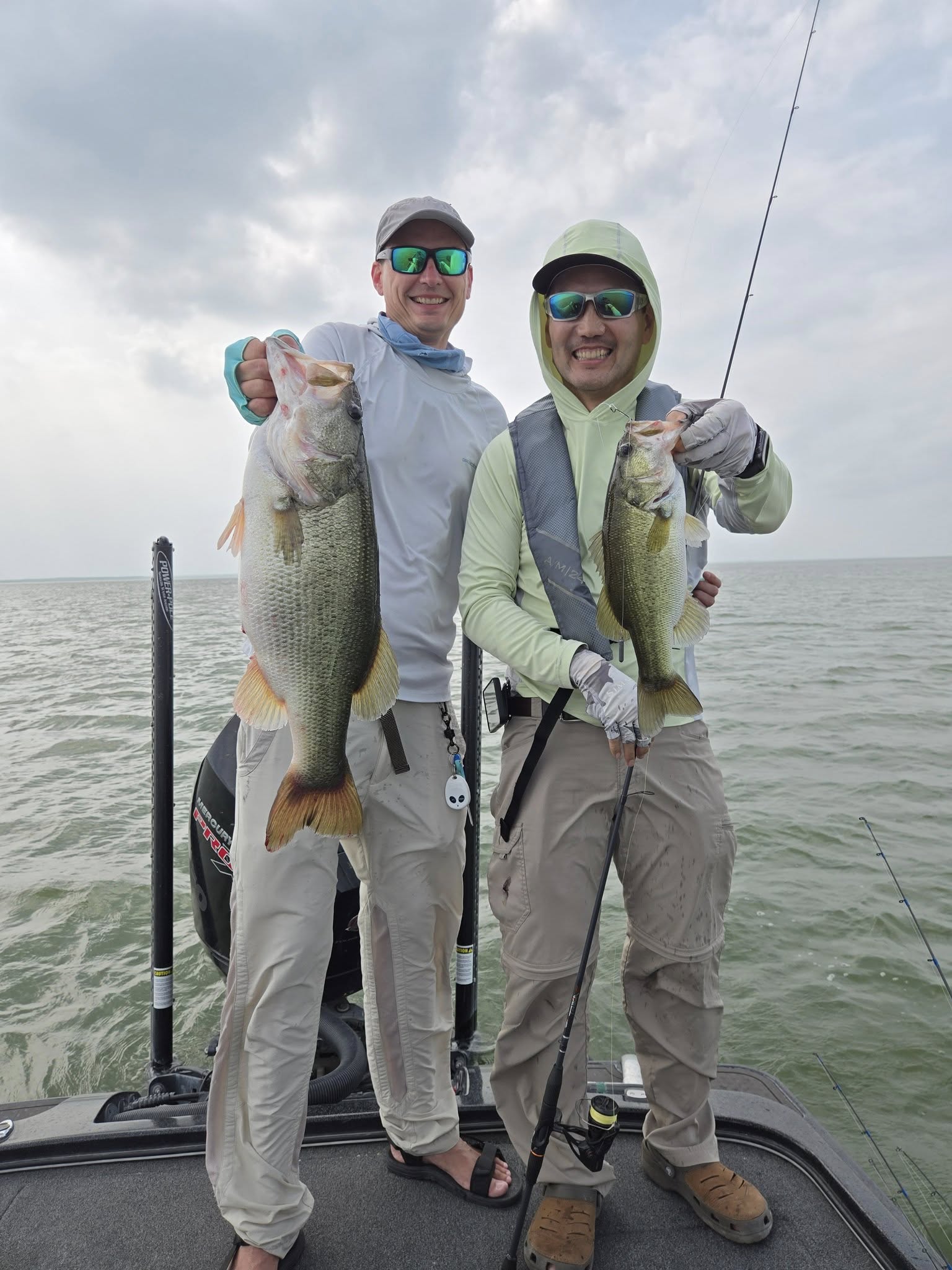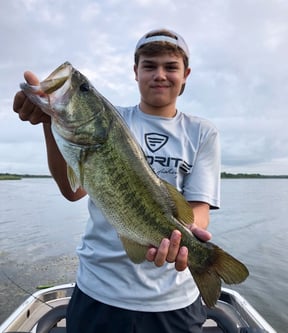Catfishing Trip On James River
Kawartha Lakes Fishing (Fall)
Kawartha Lakes Fishing
Central Texas Bass Fishing
River, Lake Fishing in Washago
Custom Ontario Fishing Adventure
French River Multi Species Trips
Largemouth Bass Fishing Trip
Small Mouth Bass Trips
Split Day Trip
Guntersville Bass Fishing Adventure
We started Captain Experiences to make it easy to book fishing and hunting guides around the world. With over 2,000 Damn Good Guides, our platform makes finding and booking a trip seamless. Head here to check out our trips.
Can Fish Smell or Taste Bait?
The short answer is yes—fish have a sense of smell and taste. But, how sharp and how precise these senses are depend on the fish. For example, catfish have 150 or more folds in their nostrils, giving them a very accurate sense of smell, while largemouth bass only have eight to thirteen, giving them a less developed sense. With that established, let’s dive a little deeper and answer some other common questions about these senses, fish attractants, and bait.

What do Fish Smell
In general, fish can only smell single compound molecules that are water soluble. Every type of prey they might come across has its own unique smell that they automatically recognize as food. The variety of scents a fish can smell is almost endless, but they all fall into only a handful of behavioral responses. Depending on the fish, these pheromone and scent responses are threat, food, migration, and possibly even spawning.
What do Fish Taste
Bass can taste four major categories which are sweet, sour, salt, and bitter. While bass have thousands of taste buds, catfish have significantly more. At only six inches long, a young catfish has more than 250,000 taste buds. Fish can taste things in a similar way to smell, which only includes single compounds that are water soluble. It’s important to know that fish are swimming through water that is full of these compounds, so they use both of these senses together to find food.
Do Fish Attractants Work?
Over the years there’s been a number of crazy things recommended by anglers that supposedly attract fish, including salty soft plastics, oily garlic spray, and even WD-40. Looking back at how fish smell and taste, only the salty bait would likely be detected. Fortunately, bait companies are continuing their research and continue to develop new baits with flavors and smells that are designed to catch more fish. So, do fish attractants work? Yes, but only some of them.

Is Smelly Bait More Effective?
While anglers targeting catfish firmly believe in stink bait, the smell you get from bait with a strong odor is what you are detecting through the air not in the water. In the water, these oily and stinky baits are missing their signature stench because many of the compounds are undetectable.
Fish Smell and Taste
While this was written with largemouth bass and catfish as the primary examples, most predatory fish have a similar range of smell and taste. Understanding how fish use these senses can help you catch more fish and also avoid using baits that won’t work. If you use scented or flavored baits, stick to attractants that fall within the detectable range.
Joey Butrus
Updated on June 20, 2023

January 7, 2022

April 15, 2022

April 26, 2022

November 7, 2023

August 21, 2023
Related Articles
August 1, 2022
April 27, 2023
Featured Locations
- Fishing Charters Near Me
- Austin Fishing Guides
- Biloxi Fishing Charters
- Bradenton Fishing Charters
- Cabo San Lucas Fishing Charters
- Cancun Fishing Charters
- Cape Coral Fishing Charters
- Charleston Fishing Charters
- Clearwater Fishing Charters
- Corpus Christi Fishing Charters
- Crystal River Fishing Charters
- Dauphin Island Fishing Charters
- Daytona Beach Fishing Charters
- Destin Fishing Charters
- Fort Lauderdale Fishing Charters
- Fort Myers Fishing Charters
- Fort Walton Beach Fishing Charters
- Galveston Fishing Charters
- Gulf Shores Fishing Charters
- Hatteras Fishing Charters
- Hilton Head Fishing Charters
- Islamorada Fishing Charters
- Jacksonville Fishing Charters
- Jupiter Fishing Charters
- Key Largo Fishing Charters
- Key West Fishing Charters
- Kona Fishing Charters
- Lakeside Marblehead Fishing Charters
- Marathon Fishing Charters
- Marco Island Fishing Charters
- Miami Fishing Charters
- Montauk Fishing Charters
- Morehead City Fishing Charters
- Naples Fishing Charters
- New Orleans Fishing Charters
- New Smyrna Beach Fishing Charters
- Ocean City Fishing Charters
- Orange Beach Fishing Charters
- Panama City Beach Fishing Charters
- Pensacola Fishing Charters
- Pompano Beach Fishing Charters
- Port Aransas Fishing Charters
- Port Orange Fishing Charters
- Rockport Fishing Charters
- San Diego Fishing Charters
- San Juan Fishing Charters
- Sarasota Fishing Charters
- South Padre Island Fishing Charters
- St. Augustine Fishing Charters
- St. Petersburg Fishing Charters
- Tampa Fishing Charters
- Tarpon Springs Fishing Charters
- Venice Fishing Charters
- Virginia Beach Fishing Charters
- West Palm Beach Fishing Charters
- Wilmington Fishing Charters
- Wrightsville Beach Fishing Charters
































